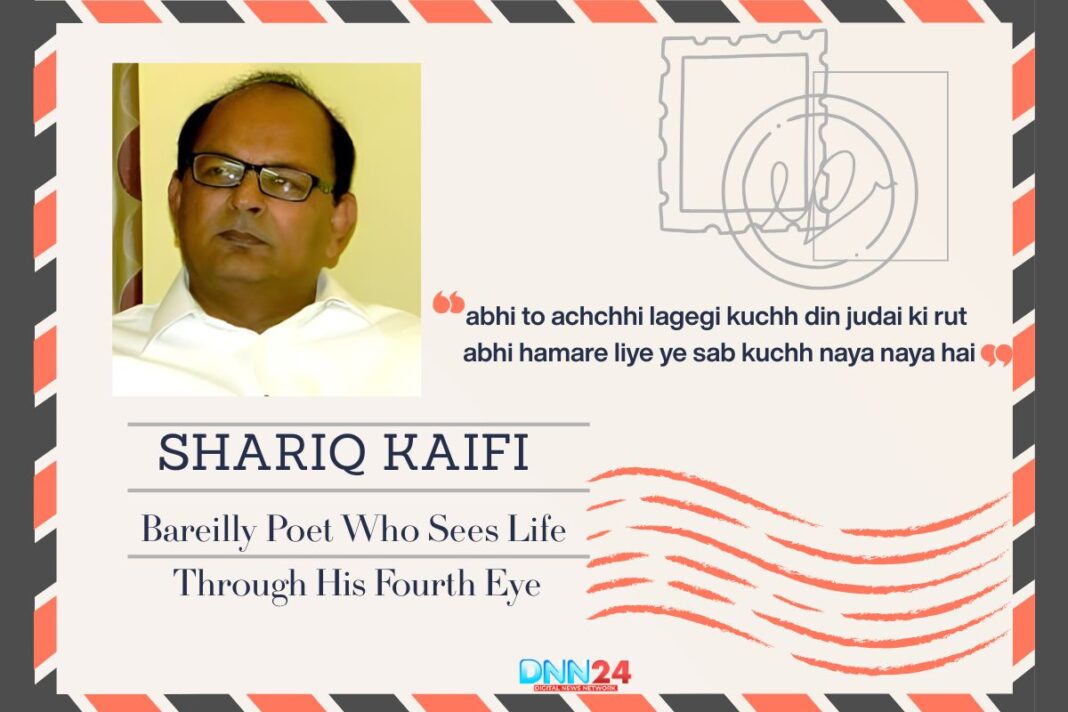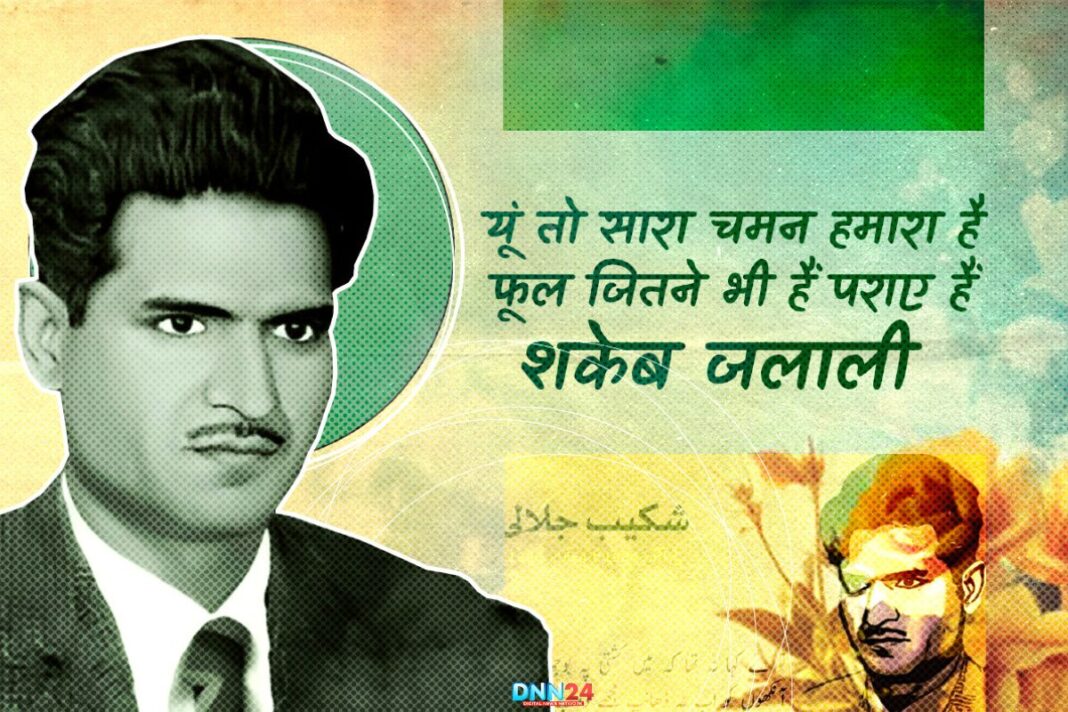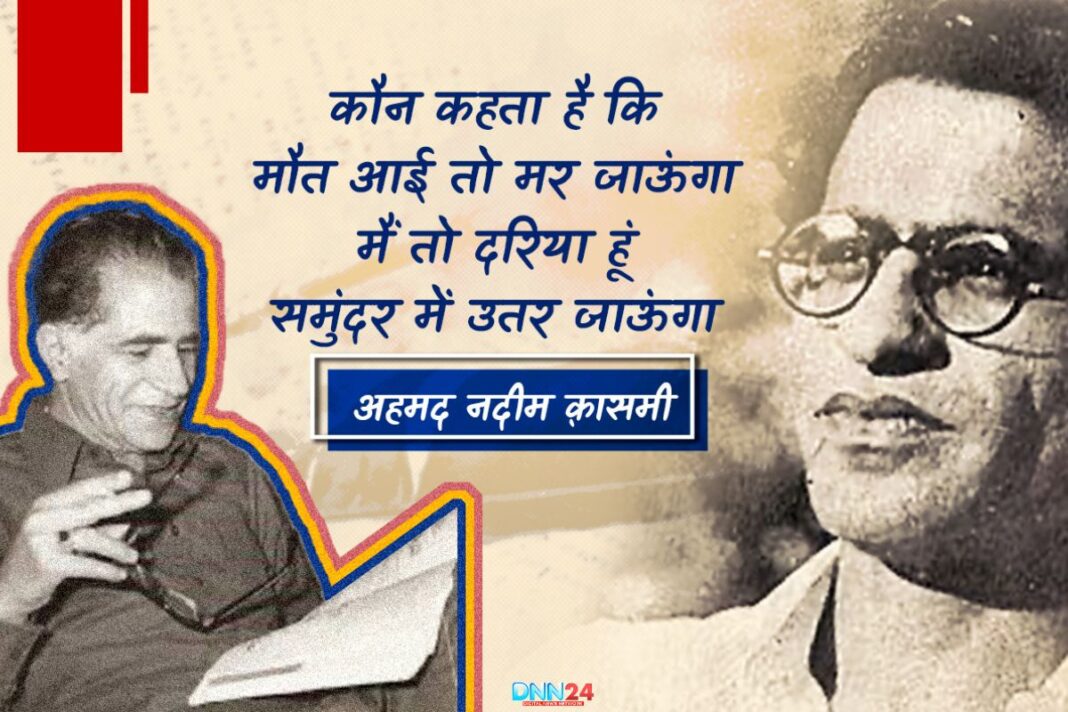Poetry does not merely arrange words on paper. It holds up a mirror to human emotions, and through that reflection, we recognise ourselves. In the vast landscape of Urdu poetry, where countless voices compete for attention, Shariq Kaifi stands apart. His ghazals and nazms do not chase after superficial beauty or hollow praise.
ghar mein khud ko qaid to main ne aaj kiya hai
Shariq Kaifi
tab bhi tanha tha jab mahfil mahfil tha main
Instead, they delve deeply into the complexities of human relationships, the ache of solitude, and the uncomfortable truths that society prefers to overlook. Known for possessing a “fourth eye,” Kaifi observes life with a depth that transforms ordinary experiences into profound artistic expression. His poetry speaks to the heart without pretence, reaching readers through its honest portrayal of love, loss, and the struggles that define our existence.
raat thi jab tumhara shahr aaya
Shariq Kaifi
phir bhi khidki to main ne khol hi li
Shariq Kaifi : Early Life and Education
Syed Shariq Husain, better known as Shariq Kaifi, was born on 1 June 1961 in Bareilly, Uttar Pradesh. He grew up in a household steeped in literary tradition. His father, Kaifi Wijdani, was himself a recognised poet, and this environment shaped young Shariq from his earliest years.
wo baat soch ke main jis ko muddaton jeeta
Shariq Kaifi
bichhadte waqt batane ki kya zarurat thi
There is an old belief that poetry flows in the blood, and when it does, nothing can stop it from finding expression. Kaifi picked up the pen at a young age, channelling his feelings and observations through carefully chosen words. He completed his B.Sc. from Bareilly and later pursued an M.A. in Urdu.
ab mujhe kaun jeet sakta hai
Shariq Kaifi
tu mere dil ka aakhiri dar tha
This formal education, combined with the rich literary atmosphere at home, refined his sensibilities and prepared him for a life dedicated to the craft of poetry. The combination proved decisive, giving him both technical mastery and emotional depth that would later define his unique voice in Urdu literature.
kaun tha wo jis ne ye haal kiya hai mera
Shariq Kaifi
kis ko itni aasani se haasil tha main
Shariq Kaifi: Beginning His Poetic Journey
Shariq Kaifi’s first collection of ghazals, “Aam Sa Radd-e-Amal,” appeared in 1989. The book caught the attention of poetry enthusiasts who recognised something genuine in his verses. Unlike many debut collections that fade into obscurity, this one marked the arrival of a poet who had something meaningful to say.
saari duniya se lade jis ke liye
Shariq Kaifi
ek din us se bhi jhagra kar liya
Nearly two decades later, in 2008, his second collection, “Yahan Tak Roshni Aati Kahan Thi,” was published. This work established him as a serious and accomplished poet, proving that his earlier success was no accident. By 2010, Kaifi expanded his repertoire with “Apne Tamashe Ka Ticket,” a collection of nazms that demonstrated his versatility.
kaise tukdon mein use kar loon qubool
Shariq Kaifi
jo mera saare ka saara tha kabhi
These three books together showcase a poet equally comfortable with the traditional ghazal form and the more narrative-driven nazm. Each publication built on the previous one, revealing an artist who grew more confident and insightful with time, never rushing to publish but waiting until he had something worthwhile to share with his readers.
kaun kahe masoom hamara bachpan tha
Shariq Kaifi
khel mein bhi to aadha aadha aangan tha
The Style That Sets Him Apart
What distinguishes Shariq Kaifi’s poetry is its absence of artifice. His verses contain no unnecessary ornamentation, no pretentious displays of vocabulary meant to impress rather than communicate. He writes in straightforward language that carries extraordinary weight. This simplicity is deceptive because beneath the precise surface lie observations that resonate with universal human experiences.
hain ab is fikr mein doobe hue hum
Shariq Kaifi
use kaise lage rote hue hum
His couplets resonate with readers because they reflect genuine emotions and real-life situations. People find themselves in his words, recognising their own loneliness, their own conflicts, their own moments of joy and despair. Kaifi does not lecture or preach. He presents life as he sees it through his unique perspective, allowing readers to draw their own conclusions.
maut ne saari raat hamari nabz tatoli
Shariq Kaifi
aisa marne ka maahaul banaya hum ne
This approach requires tremendous confidence and skill because there is nowhere to hide when you strip away elaborate metaphors and complex structures. The poet must rely entirely on the truth of his observations and the precision of his expression, both of which Kaifi possesses in abundance.
sab aasan hua jaata hai
Shariq Kaifi
mushkil waqt to ab aaya hai
The Fourth Eye Perspective
Kaifi describes his approach to poetry through the concept of a “fourth eye.” This metaphor captures his method of looking beyond surface appearances to find deeper meanings in everyday situations. Where others might see simple interactions, he perceives layers of emotion and social dynamics at play. His nazms, though often brief, contain sharp social commentary wrapped in accessible language.
kahan socha tha main ne bazm aarai se pehle
Shariq Kaifi
ye meri aakhiri mahfil hai tanhai se pehle
This ability to see what others miss makes his work both entertaining and enlightening. He shows us aspects of our own lives that we had not fully recognised or acknowledged. The fourth eye allows him to observe without judgment while still highlighting contradictions and hypocrisies.
faasla rakh ke bhi kya haasil hua
Shariq Kaifi
aaj bhi us ka hi kahlata hoon main
His poetry examines relationships not as they are romanticised in popular culture but as they actually exist, with all their complications and imperfections. This honest gaze extends to society as well, where Kaifi notices the gaps between what people profess and what they practice, between ideals and reality, between appearance and substance.
aao gale mil kar ye dekhen
Shariq Kaifi
ab hum mein kitni doori hai
Humanity in His Verses
A profound sense of humanity pervades all of Shariq Kaifi’s work. He treats human relationships with respect while simultaneously exposing their fragility and the pretences that often surround them. His poetry addresses love, friendship, and separation, but it never stops there. He also critiques social attitudes, pointing out double standards and shallow values that damage genuine human connections.
jhoot par us ke bharosa kar liya
Shariq Kaifi
dhoop itni thi ki saya kar liya
Reading his poetry feels like having a conversation with a perceptive friend who understands your struggles without needing lengthy explanations. His verses delve into the depths of the human heart, reflecting our loneliness, desires, and losses. There are no heavy, burdensome words meant to showcase erudition.
naya yoon hai ki an-dekha hai sab kuchh
Shariq Kaifi
yahaan tak roshni aati kahan thi
Instead, his ghazals and nazms move directly from heart to heart, creating an immediate emotional connection. This quality makes his work accessible to a broad audience while maintaining literary merit. He proves that profound ideas need not be expressed in complicated ways, that simplicity and depth can coexist when a poet truly understands both language and human nature.
duniya shayad bhool rahi hai
Shariq Kaifi
chaahat kuchh ooncha sunti hai
His Relevance Today
In an era when much poetry has become a performance of clever wordplay or empty sentiment, Shariq Kaifi’s work arrives like fresh air. His verses remind us what authentic poetry should accomplish: touching the human soul, revealing uncomfortable truths, and creating genuine emotional responses. His approach avoids pure imagination disconnected from reality and refuses to retreat into abstract concepts.
jin par main thoda sa bhi aasan hua hoon
Shariq Kaifi
wahi bata sakte hain kitna mushkil tha main
Instead, he captures real life, authentic relationships, and real emotions, transforming them through his distinctive perspective into art that matters. Kaifi belongs to that rare category of poets whose words seem to voice what readers themselves feel but could not articulate. His ghazals explore love, friendship, and solitude with tender precision, while his nazms deliver sharp observations about society and its failings.
achanak hadbada kar neend se main jaag utha hoon
Shariq Kaifi
purana waqia hai jis pe hairat ab hui hai
Though he hails from Bareilly, his voice resonates throughout India and across the broader world of Urdu literature. Anyone searching for poetry that speaks truthfully about the human condition would do well to explore Shariq Kaifi’s work, where every verse carries the weight of lived experience and honest observation.
Also Read: Deep Narayan Nayak: Teacher of the Street Who Turned Walls into Blackboards
You can connect with DNN24 on Facebook, Twitter, and Instagram and subscribe to our YouTube channel.



